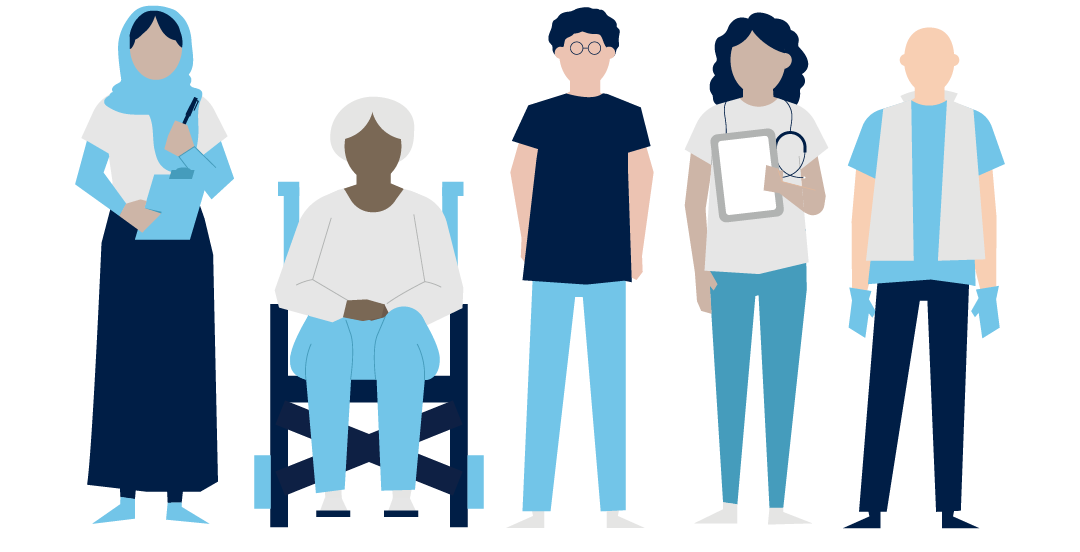
Stories
Changing it up: Diabetes Canada calls for a new conversation around the disease

Four years ago, when Laura Syron was diagnosed with type 2 diabetes, it was a shock. “The news wasn’t delivered well, and I had so many questions,” she said. “What does this mean? Am I going to die early? Is this my fault? It was a horrible feeling.”
Syron is one of 3.7 million* Canadians with diabetes—and she happens to also be the president and CEO of Diabetes Canada. Her personal experience with diabetes has helped her relate to the difficult road so many with type 1 and type 2 diabetes must travel. She understands the impact of diagnosis, the fears, the setbacks and the persistent need to manage the disease every single day—as well as the misinformation, stigma and uncomfortable conversations.
Unlike other Canadian diabetes organizations that focus solely on type 1, Diabetes Canada addresses type 1, type 2 and gestational diabetes, as well as prediabetes. Its goal is first to offer education and support to people through programs for kids and adults alike. Diabetes Canada is also unique in that it provides professional education and clinical guidelines for healthcare providers, including hosting an annual Diabetes Canada Professional Conference.
Its ongoing vision is to create a world free of the effects of diabetes. In addition, it recently established a new goal, one that is close to Syron’s heart: to “change the conversation” around diabetes.
Misunderstandings and misconceptions
“We really want to address the misunderstandings and misconceptions about diabetes,” she said. “There’s blame, there's stigma, there's apathy. There is misinformation. Sometimes there is minimizing, as in, ‘It’s no big deal, it’s not going to cut your life short, right?’ That's not necessarily true. ‘There's insulin, that's a cure.’ That's not true. There are also a lot of negative stereotypes—like if you got diagnosed with type 2, ‘that must mean you're overweight, that you eat too many french fries.’ ‘It’s your fault.’ Or ‘Have a piece of cake, what’s the big deal?”

Syron likens the goal of “changing the conversation,” to how perceptions of mental illness have been shifted over the past 10 or 15 years.
“There was the stigma, and people were afraid to talk about mental illness,” she said. “There wasn't a lot of corporate funding or government focus on it. Now, it’s different—and we want the same for diabetes. We want people living with diabetes to be able to disclose it, and easily seek and access help. We want governments to put more resources into diabetes.”
Fortunately, in marking the 100th anniversary of the discovery of insulin, the federal government unanimously passed a bill that requires it to table a national diabetes framework by June 2022.
“This is a window of opportunity for us, to work with the government to help them come up with a framework that improves access to diabetes care,” said Syron.
As Diabetes Canada works with the government on the framework and on its initiative to change the conversation, Medtronic, a partner since 1990, continues to work steadily alongside the organization.
Values aligned
“Our values and Medtronic’s are really aligned,” said Syron. “Like us, Medtronic has always put the patient at the centre. Both our organizations look at the diabetes ecosystem in Canada and ask, ‘What’s best for the person who lives with the disease?’”
Syron calls the partnership “symbiotic,” and says it’s not just about finances, it's about sharing research, knowledge, and resources.
Over the years, Medtronic has been especially involved in professional education and engaging healthcare professionals, including sponsoring the annual Professional Conference. It continues to do so, while offering support and insights as Diabetes Canada takes on its mission to change the conversation around diabetes.
“Sadly, the incidence of diabetes is growing so partnerships like this are increasingly important. It's not an exaggeration to say we couldn't achieve our vision and mission without that support.”
For more information visit diabetes.ca and medtronicdiabetes.ca


